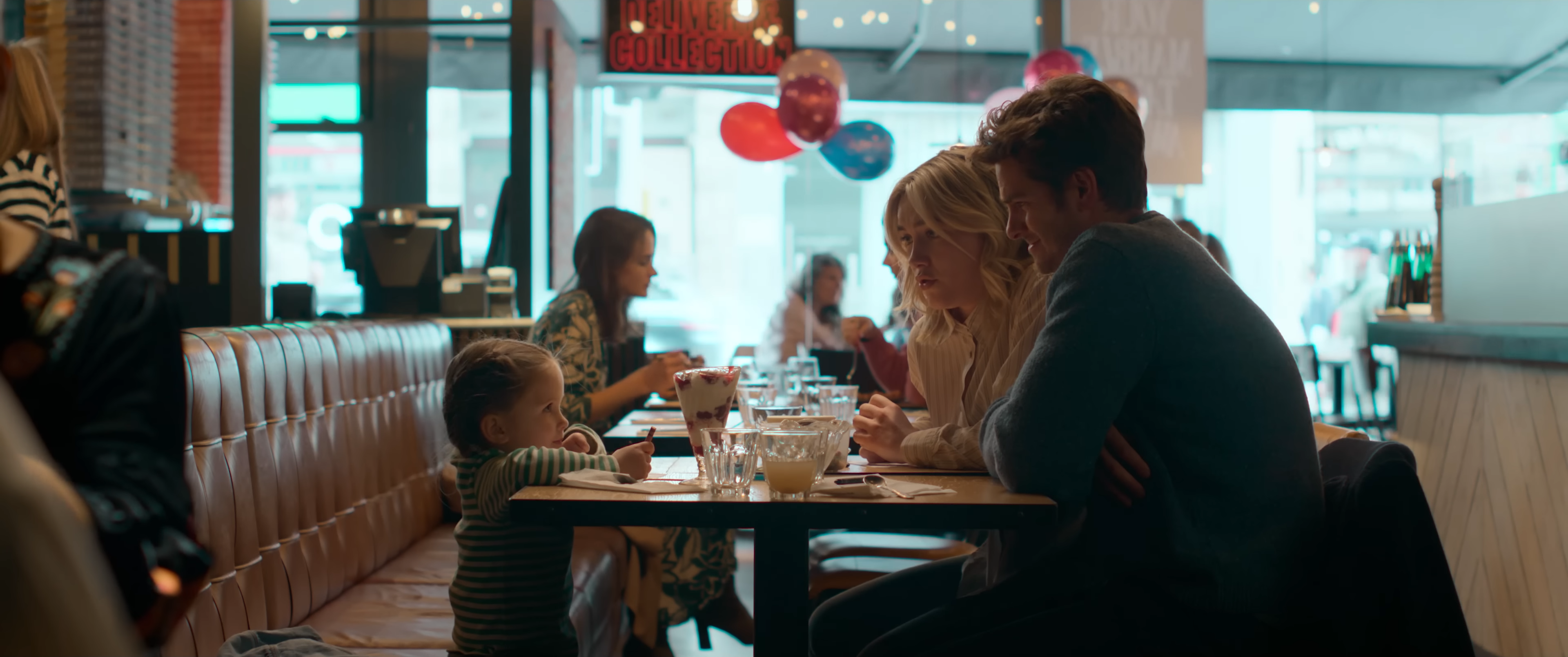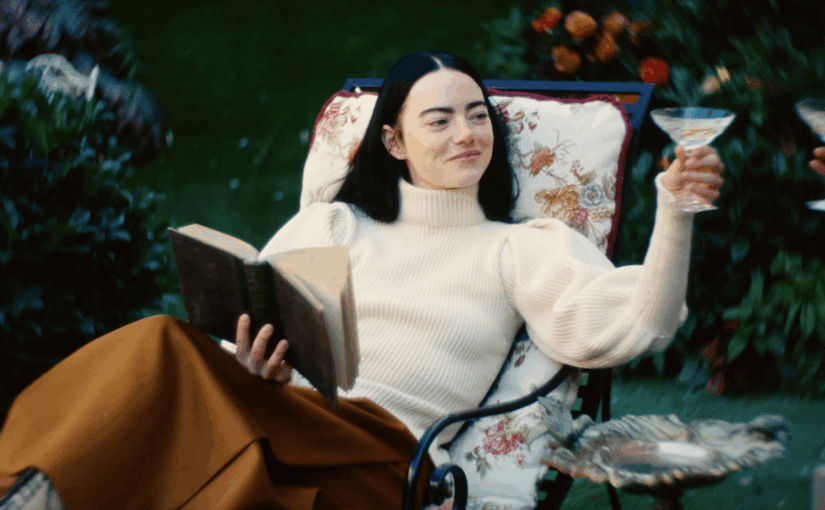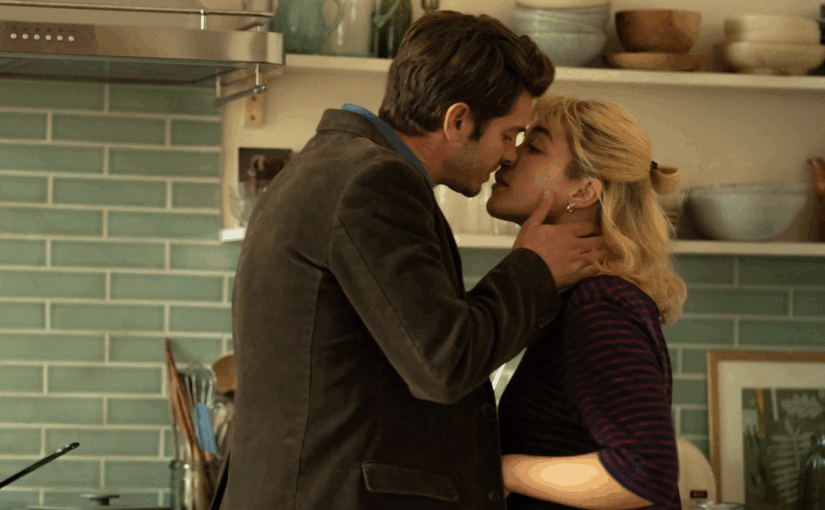| Actress | Top 3 Performances of the Last Decade |
| 1. Emma Stone | 1. Poor Things (2023) 2. La La Land (2016) 3. The Favourite (2018) |
| 2. Cate Blanchett | 1. Tár (2022) 2. Nightmare Alley (2021) 3. Disclaimer (2024) |
| 3. Scarlett Johansson | 1. Marriage Story (2019) 2. Asteroid City (2023) 3. Jojo Rabbit (2019) |
| 4. Florence Pugh | 1. Midsommar (2019) 2. Little Women (2019) 3. Oppenheimer (2023) |
| 5. Margot Robbie | 1. Babylon (2022) 2. I, Tonya (2017) 3. Once Upon a Time in Hollywood (2019) |
| 6. Frances McDormand | 1. Nomadland (2020) 2. The Tragedy of Macbeth (2021) 3. Three Billboards Outside Ebbing, Missouri (2017) |
| 7. Olivia Colman | 1. The Favourite (2018) 2. The Lost Daughter (2021) 3. Empire of Light (2022) |
| 8. Saoirse Ronan | 1. Little Women (2019) 2. Lady Bird (2017) 3. The Outrun (2024) |
| 9. Anya Taylor-Joy | 1. Furiosa: A Mad Max Saga (2024) 2. The Queen’s Gambit (2020) 3. The Menu (2022) |
| 10. Tilda Swinton | 1. Suspiria (2018) 2. The Souvenir (2019) 3. Hail, Caesar! (2016) |
| 11. Jessie Buckley | 1. I’m Thinking of Ending Things (2020) 2. Men (2022) 3. The Lost Daughter (2021) |
| 12. Toni Collette | 1. Hereditary (2018) 2. I’m Thinking of Endings Things (2020) 3. Nightmare Alley (2021) |
| 13. Natalie Portman | 1. Jackie (2016) 2. May December (2023) 3. Annihilation (2018) |
| 14. Carey Mulligan | 1. Promising Young Woman (2020) 2. Saltburn (2023) 3. She Said (2022) |
| 15. Margaret Qualley | 1. The Substance (2024) 2. Once Upon a Time in Hollywood (2019) 3. Poor Things (2023) |
| 16. Kristen Stewart | 1. Spencer (2021) 2. Love Lies Bleeding (2024) 3. Personal Shopper (2016) |
| 17. Ana de Armas | 1. Blonde (2022) 2. Knives Out (2019) 3. Blade Runner 2049 (2017) |
| 18. Sandra Hüller | 1. The Zone of Interest (2023) 2. Anatomy of a Fall (2023) 3. Toni Erdmann (2016) |
| 19. Tessa Thompson | 1. Passing (2021) 2. Sorry to Bother You (2018) 3. Annihilation (2018) |
| 20. Rebecca Ferguson | 1. Dune: Part I and II (2021, 2024) 2. Doctor Sleep (2019) 3. Mission: Impossible – Fallout (2018) |
| 21. Laura Dern | 1. Marriage Story (2019) 2. Little Women (2019) 3. Twin Peaks: The Return (2017) |
| 22. Elle Fanning | 1. The Neon Demon (2016) 2. 20th Century Women (2016) 3. A Complete Unknown (2024) |
| 23. Sally Hawkins | 1. The Shape of Water (2018) 2. Bring Her Back (2025) 3. Paddington 2 (2017) |
| 24. Viola Davis | 1. Widows (2018) 2. The Woman King (2022) 3. The Suicide Squad (2021) |
| 25. Michelle Yeoh | 1. Everything Everywhere All at Once (2022) 2. A Haunting in Venice (2022) 3. Wicked (2024) |
Tag: Florence Pugh
We Live in Time (2024)
John Crowley | 1hr 47min

Although the span of Tobias and Almut’s relationship in We Live in Time transpires in non-linear fashion, its overarching structure is largely governed by three interwoven timelines. The first begins with their unconventional meet cute after Tobias’ divorce from his wife, topping off a series of humiliating misfortunes that involve him wandering the city in a hotel robe and Almut eventually striking him with her car. It isn’t until he is taken to the hospital that the two properly introduce each other and, against all odds, hit it off. From there, we leap through the joyous and tumultuous first few years of their romance, seeing them fight over Almut’s resistance to having children before eventually falling pregnant.
It is there where the first and second timelines chronologically meet, though having watched scenes from both formally bounce off each other, we are already deep into those turbulent nine months by the time their younger selves are ready to conceive. Humour goes hand in hand with the anxiety of bringing a new life into the world, particularly when Tobias discovers his car has been boxed in their first rush to the hospital, or as Almut wanders to a nearby petrol station for snacks in the midst of labour. It is a miracle at all that she was able to conceive given her ovarian cancer and partial hysterectomy, but ever since going into remission, their lives have been flooded with hope for the future.
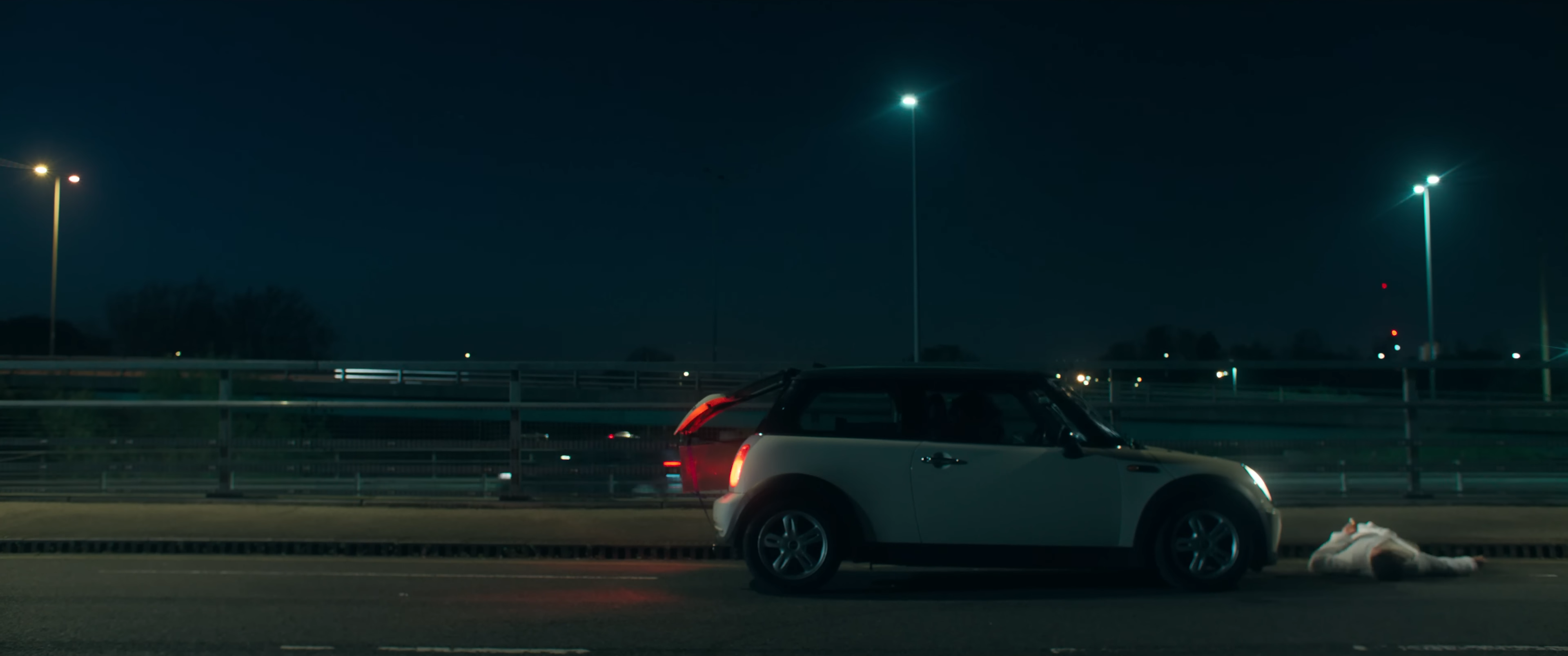
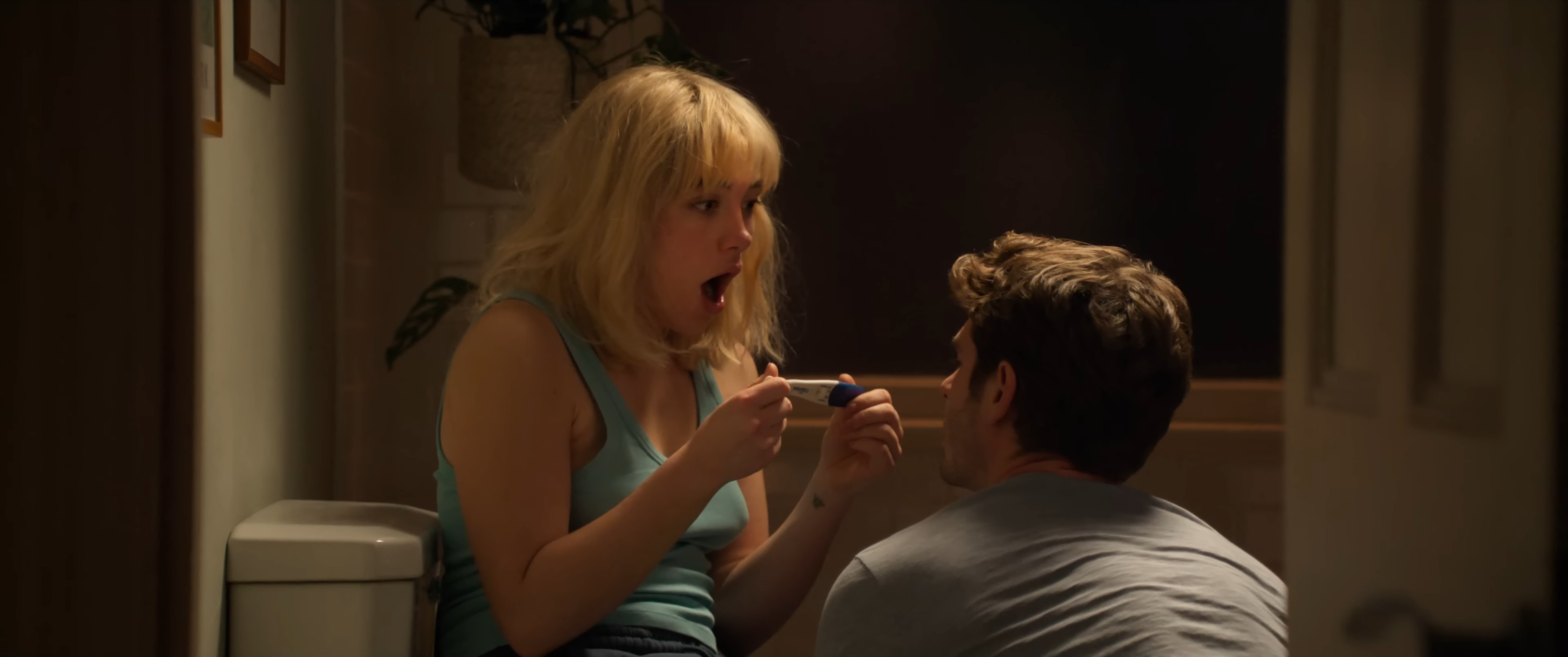
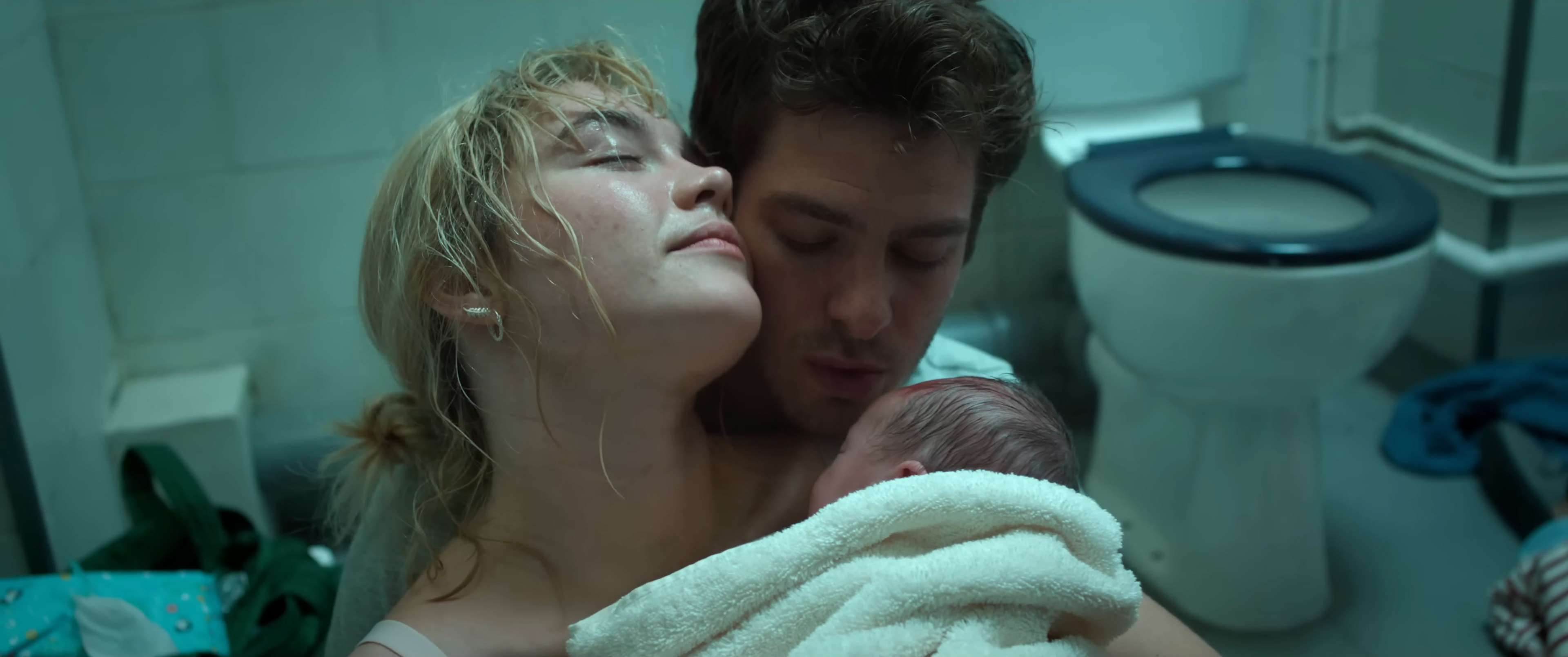
Travelling parallel to these two timelines is the third and most harrowing of them all, beginning three years after the birth of Tobias and Almut’s daughter, Ella. The return of Almut’s cancer marks a turning point for this couple, bringing into focus the fleeting beauty of their life thus far, as well as the emotional justification for the film’s formal fragmentation. Even as flashbacks to earlier moments in their relationship colour their happiness with melancholy shades of grey, there is a strange comfort in the grieving process it prematurely initiates, savouring every celebration, argument, and tender reconciliation between these lovers.
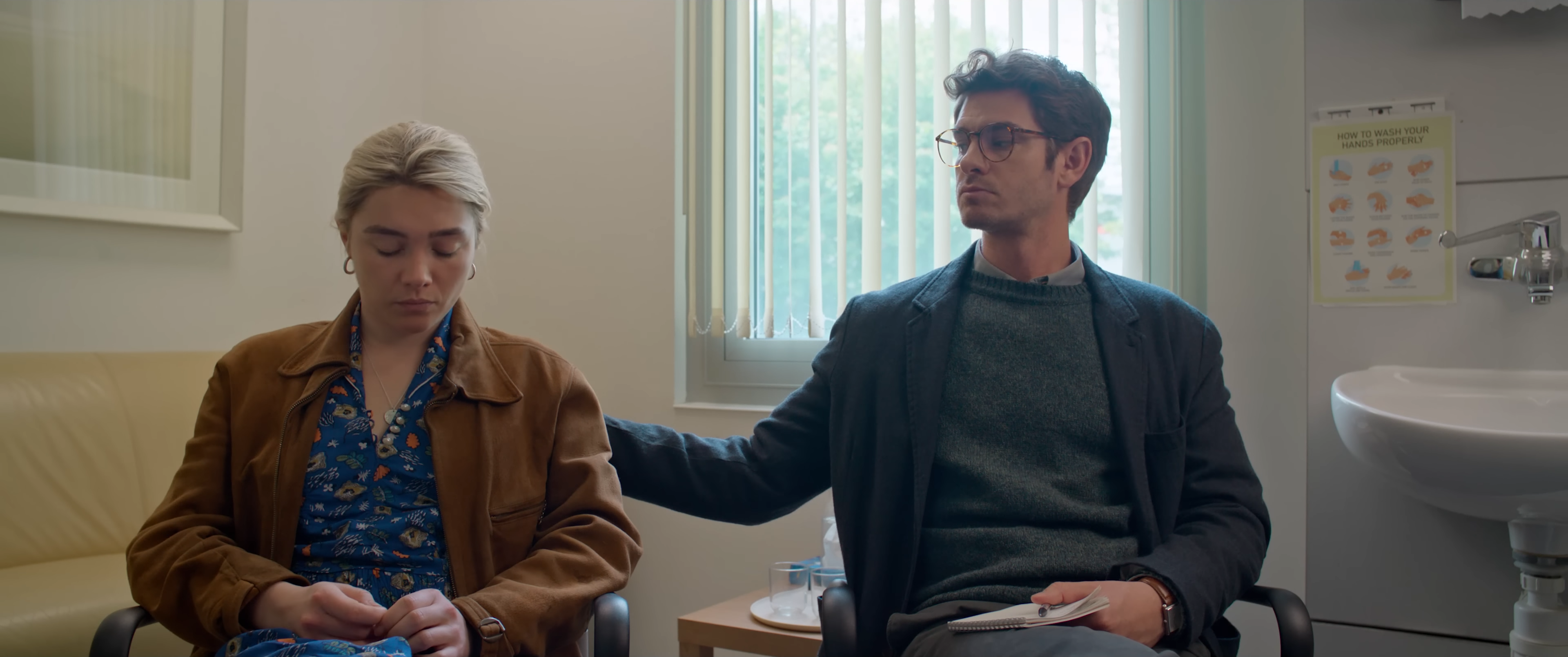
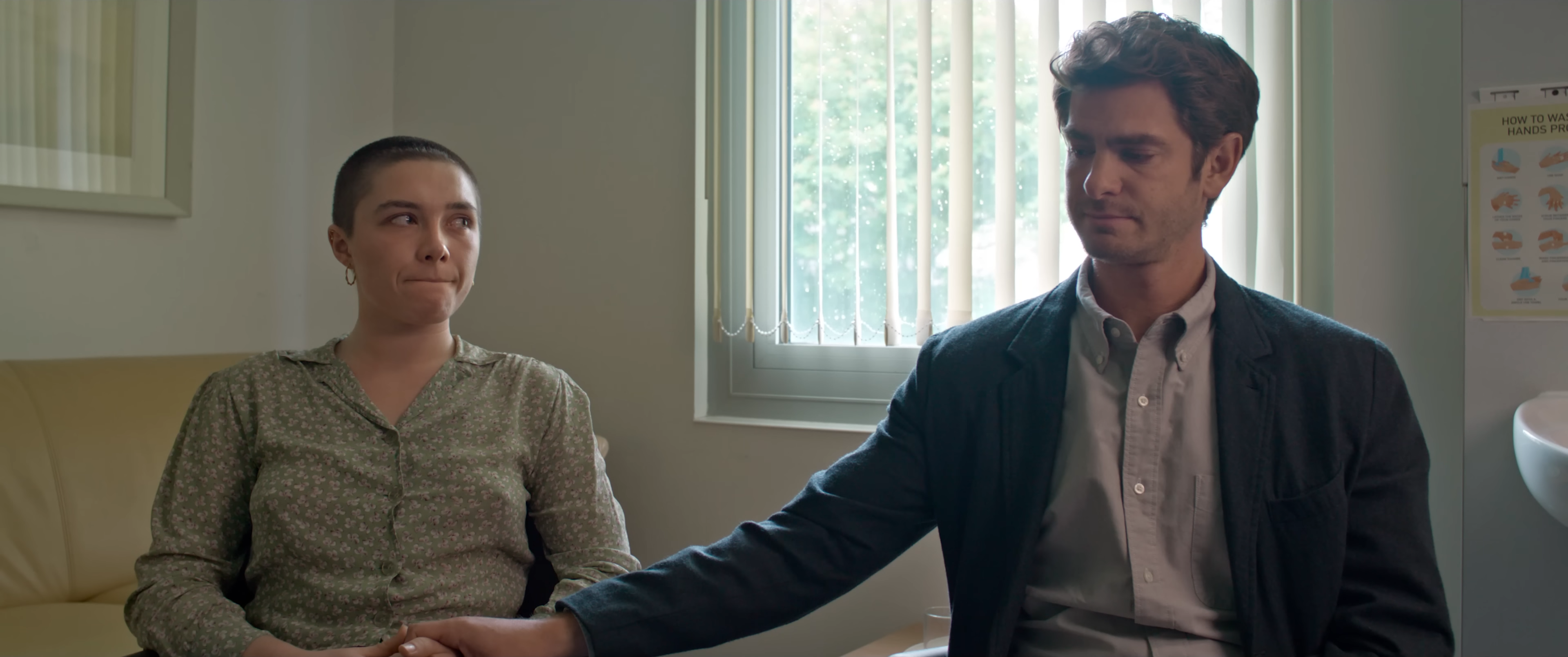
Beyond its narrative structure, We Live in Time is a film which thrives on the attraction and friction between two personalities – one a self-reliant chef who keeps her emotional guard up, and the other an idealistic sales rep who leans on the validation of loved ones. The two bring out the best in each other when they are on the same page, but the more Tobias tries to plan out a future with children and marriage, the more Almut withdraws. Later when she refuses to let terminal illness impact her quality of life, we see this combative resistance emerge once again, compelling her to train for a prestigious cooking competition. Realising that Tobias would disapprove of her prioritising the Bocuse d’Or over her declining health, she decides to keep it secret for as long as possible, driving a wedge between them while guiltily grappling with this betrayal of his trust.
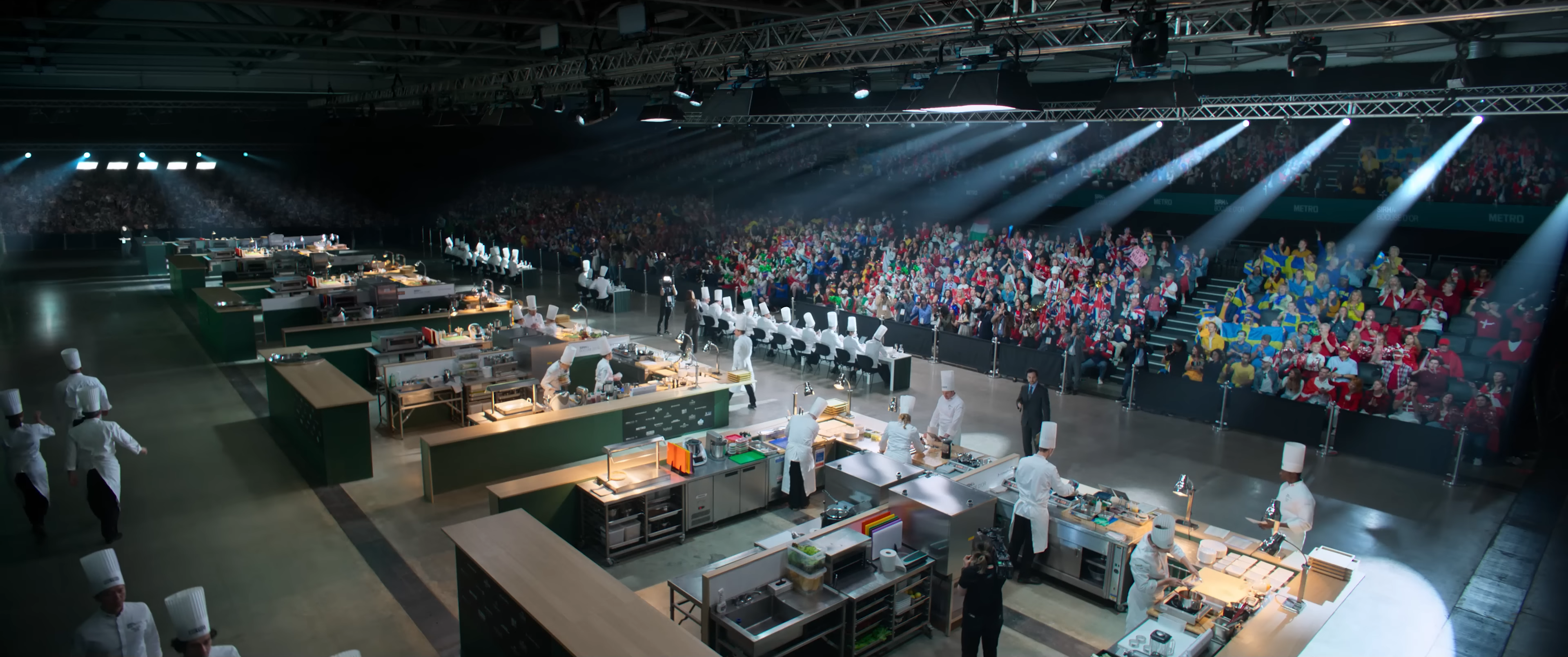
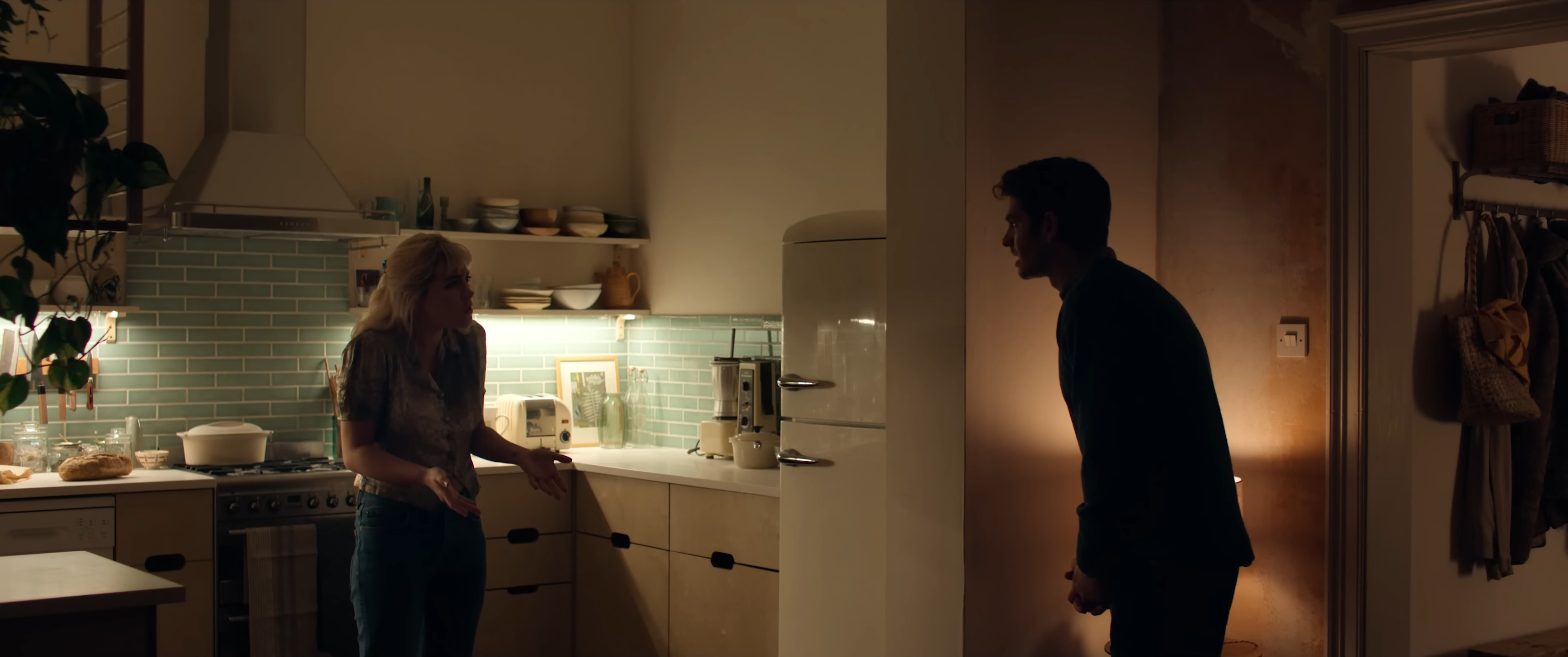
Were it not for Andrew Garfield and Florence Pugh’s natural chemistry, the love which persists through these tests of Tobias and Almut’s relationship would not be half as convincing either. They are a magnetic force onscreen, distinguishing each timeline by the stark physical and emotional changes in their performances, and revealing a shared interiority even when the screenplay short changes them. When Tobias finally proposes to Almut, his decision to let her read his journal rather than outwardly express his feelings aloud denies us deeper insight into their relationship, and is only saved by their non-verbal reactions smoothing over the lazy writing.
When it comes to the narrative pacing at least, John Crowley wields a fine control, occasionally even delivering a refined sense of style in the jittery editing and radiant lighting of montages that relish the richness of Tobias and Almut’s love. The extraordinarily unusual circumstances that surround her childbirth are given all the tension and catharsis that this pivotal beat requires, and when tragedy inevitably arrives, Crowley’s delicate omission of certain details leaves us to fill in the gaps with a pair of backwards tracking shots. In this moment, the space between these parting lovers speaks for the indescribable sorrow hanging in the air, gently laying their relationship to rest.
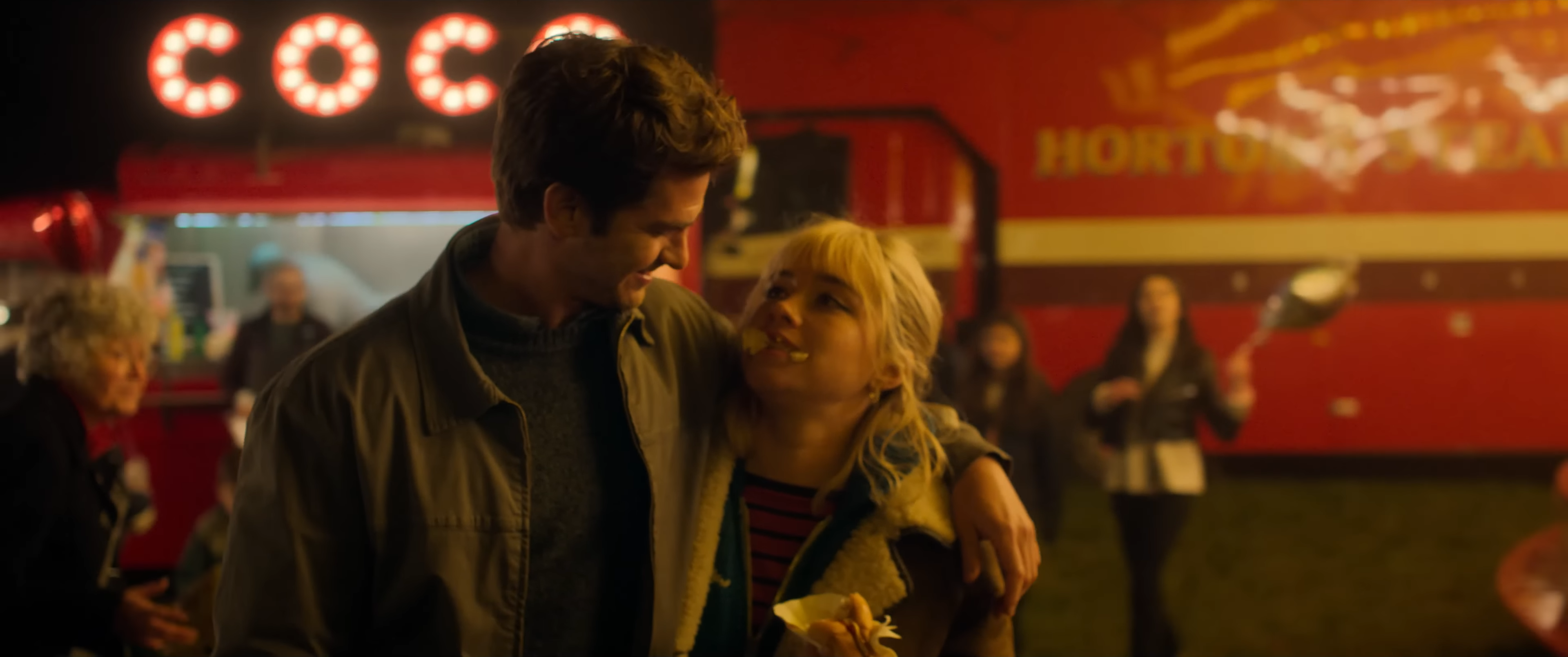
Within the splintered structure of We Live in Time, Crowley doesn’t simply evoke the act of recalling a person’s life. Almut’s desire to be remembered as more than just someone’s dead mother is granted by the layered manner in which her story unfolds, preserving memories of personal struggles alongside those of profound devotion, aspiration, and passion. Even before one’s physical being fades though, it is evident here that one’s legacy already begins taking complex shape, imprinted in the minds of those soon to be left behind and carving a quiet, enduring presence into the very fabric of time.
We Live in Time is currently available to purchase on Apple TV, YouTube, and Amazon Video.
